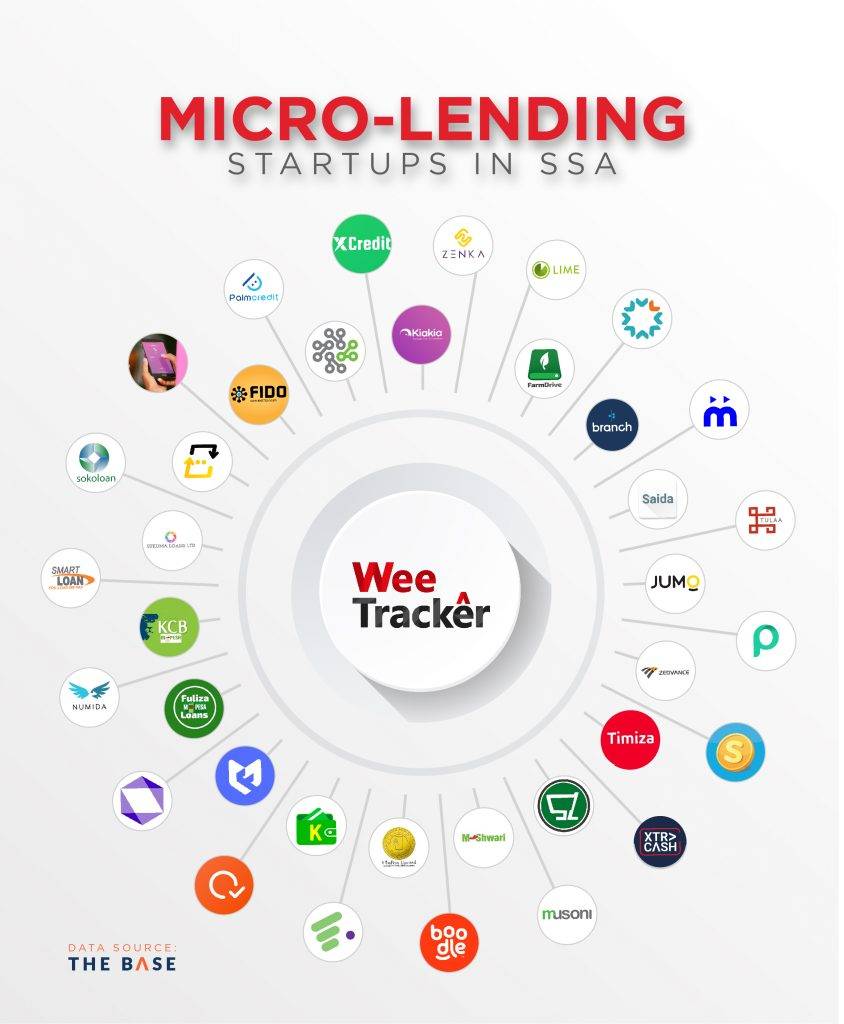The Metamorphosis of Micro-Lending
When Bangladeshi national and economics professor, Mohammed Yunus, introduced the concept of microlending over 40 years ago, the idea was to uplift village artisans who were hamstrung by poverty despite their skill.
In those days, basket weavers in their homeland were considered poor credit risks and, thus, were forced to borrow money at high-interest rates to be able to purchase bamboo. In the end, they made no profit after repaying moneylenders.
Eventually, Yunus set up a local bank which he called Grameen Bank. “Grameen” means “Village” in the local dialect, and the institution has since played a big role in financing micro-enterprises in Bangladesh.
Financing micro-enterprises with low-interest loans was the sole idea behind micro-lending initially, but the concept has evolved as years rolled by.
In today’s world, micro-loans are now available within minutes of making a few clicks and the purpose of micro-lending is now more about funding people’s personal, everyday expenses than providing capital for small businesses.
In Africa where many are excluded from formal financial services, micro-lending, especially via digital channels, is becoming very popular, and more so among young adults.
In Sub-Saharan Africa, two-thirds of the adult population do not have access to formal financial services. Thus, small, quick loans have become the go-to for many low- to middle-income individuals who need instant loans at low rates.
Africa’s micro-lending segment has evolved such that even the bigger, formal financial institutions like Deposit Money Banks (DMBs) have begun to offer quick, small loans in a manner not unlike digital lending startups in Africa.
Africa’s micro-lending environment has also opened up to foreign capital where startups like Tala, a mobile lending app with headquarters in Santa Monica, U.S., for example, has ventured into the Sub-Saharan Africa market and raised close to USD 200 Mn in the last 7 years.
As has been earlier mentioned, in the years past, the main aim of micro-lending was to issue funds for the creation and expansion of micro-enterprises.
But current evidence suggests the aim has changed as we list 30+ micro-lending startups in Sub-Saharan Africa that focus on offering personal loans — with 72% of the startups are available only on mobile applications and 28% accessed through digital platforms such as websites and chatbots.

The Fate Of African Micro-Lending In The COVID-19 Crisis
COVID-19 has slowed down global economies and the world is on the brink of another major recession. Major industries and sectors are already reeling from the impact of the pandemic and the aftershocks may linger long after COVID-19 is done wreaking havoc.
According to a report by The World Health Organization (WHO) as of April 9, the spread of the virus has reached 55 African countries where there have been 23,951 cases reported with 6,269 recoveries and 1,166 deaths.
In just a few months, the world has changed and primary emphasis is now on staying safe and healthy. But maintaining the health of businesses is important too.
The global pandemic has affected and is still affecting businesses and consumer behaviour within a short time. According to a survey done by the International Labour Organization (ILO) full or partial lockdown measures taken by countries are now affecting almost 2.7 billion workers, representing around 81 percent of the world’s workforce.
Just like in other parts of the world, businesses in Africa have had to make much-needed and, in some cases, drastic changes aimed at survival since the pandemic brought things to a standstill.
And Africa’s micro-lending space has witnessed more than a few changes of its own since COVID-19 went from “viral outbreak that doesn’t affect people with enough melanin” to “global pandemic that is no respecter of person.”
In Africa where the informal sector accounts for the majority of jobs, the lockdown measures put in place by governments have put many people out of work, however temporarily. This has led to reduced income and, in some cases, full-blown hardship and privation.
Aware of the shrinking of income streams of customers, several micro-lending startups in Africa have acted accordingly, making moves aimed at shielding their business as best as possible without squeezing users in what is a torrid time for everyone.
Our team took time to understand micro-lending in Sub-Saharan Africa, and we found 30+ active micro-lending startups that offer short-term loans for personal use with a payment duration day for a maximum of 30 days.
Our main interest was finding the measures these startups were taking to support their clients during this pandemic. And here’s what we found.
M-shwari (Kenya)
Kenya is perhaps the home of digital micro-lending in Africa with up to 49 known digital lenders, according to one report.
M-shwari, which is one of the most-popular micro-lending platforms in Kenya, has communicated to its users through a text message on how they plan on handling the situation.
In the text message, they mentioned that they have increased the number of days to get an additional fee facility from 30 days to 60 days thus giving its users more time to pay their loans. M-shwari has also cancelled the loan limit to 0 only in the situation where the borrower is unable to pay back their loan after 120 days.
Carbon (Nigeria)
Nigeria-based microlender, Carbon, made a detailed blog post about the measures they have taken.
Carbon has adjusted its maximum loan amount from NGN 1 Mn to NGN 500 K with the aim of exposing their borrowers to a large number of loans. They highlighted that they will slow down the loan increases for repeat borrowers on their next loan offer to a lower amount than usual. They also mentioned that they will slow down some loan applications to minimize the business risk during this time.
Pezesha (Kenya)
Pezesha, a mobile app for MSMEs based in Kenya, said it will be educating their users via chatbots on survival measures they could take and the impact of COVID-19 on their businesses as some businesses have shut down while others are struggling to survive.
They have also increased their payback periods to be longer and have accommodated a small installments plan that will enable its borrowers to pay their loan and has reduced interest rates to be able to manage debt in the long term.
Others
In Kenya, Digital Lenders Association of Kenya (DLAK) has taken the initiative to support plans of regulating the digital lending space by waiving late repayment fees as a way to support customers in this sector specifically during this time of the COVID-19 outbreak.
The union consists of 17 digital lending startups where Tala which is among them have introduced Community Support Loan for its customers who only provide essential services to their communities where they get 0% interest rate, 6-month payment duration and a loan maximum of KES 30 K (USD 283)
KCB M-Pesa which is a saving and lending mobile platform in Kenya has been financed with USD 280 Mn by KCB Bank to support its customers during this pandemic for the next 90days. It has increased its borrowing limit days where the loan facility offers 30-day, 90-day and 180-day loans with interest rates of between two percent and six percent.
While the depth and length of the economic downturn remain uncertain, micro-lending startups will have to make long-term strategic plans for survival purposes during this pandemic.
| Country | Logo | Company |
|---|---|---|
| Kenya | Pezesha | |
| Kenya | Tala | |
| Kenya | Musoni MIcro Finance | |
| Kenya | Shika App | |
| South Africa | Boodle | |
| Nigeria | Carbon | |
| Nigeria | FairMoney | |
| Nigeria | Soko Loan | |
| Nigeria | Quickcheck | |
| Nigeria | PalmCredit | |
| Uganda | Xcredit | |
| Uganda | Zenka | |
| Kenya | SmartLoan | |
| Uganda | SukumaLoans | |
| Kenya | Timiza App | |
| Ghana | Fido | |
| Egypt | Kashat | |
| Kenya | Tulaa | |
| Nigeria | Zedvance Finance Limited | |
| Kenya | Kashway | |
| Kenya | Ubapesa | |
| Kenya | Senti | |
| Egypt | MoneyFellows | |
| Kenya | KCB M-pesa | |
| Kenya | Fuliza | |
| Kenya | Saida | |
| Nigeria | XtraCash | |
| Kenya | M-shwari | |
| South Africa | Lime24 | |
| Kenya | Branch International | |
| Kenya | Farmdrive | |
| Nigeria | Social Lender | |
| Nigeria | Opay | |
| Nigeria | Migo | |
| Nigeria | KiaKia |
The data in this research piece comes from THE BASE, Africa’s leading market intelligence platform focused on private companies, VC and PE space. Sign up for FREE today.
